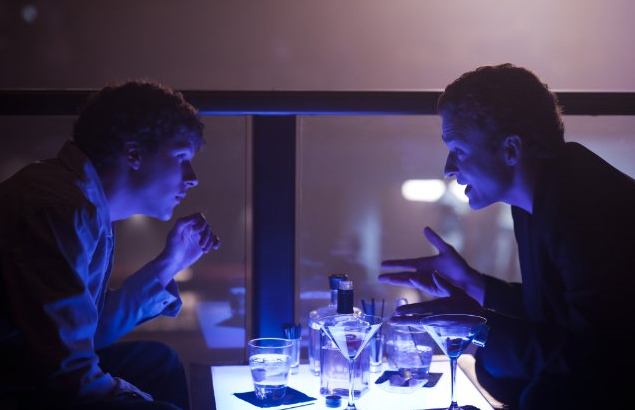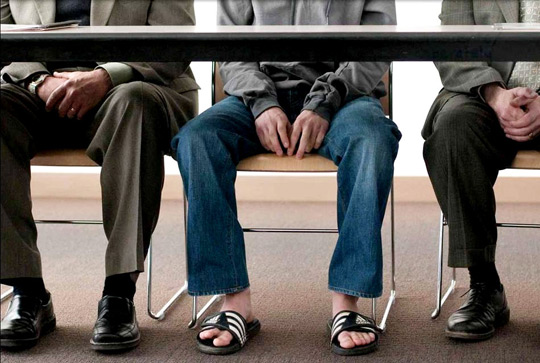“Do feelings of deprivation drive entrepreneurs and economies?,” asks Rosabeth Moss Kanter, a professor at Harvard Business School. After watching ‘The Social Network‘ one evening this week, I was left with feelings of inspiration and speculation, much to do with the same question.

Speaking at Startup School, Mark Zuckerberg got a laugh out of how accurately his wardrobe was represented in the movie. “It’s interesting what stuff they focused on getting right,” Zuckerberg reflected. More importantly, Zuckerberg took a stab at Hollywood, “They just can’t wrap their head around the idea that someone might build something because they like building things.” I think that’s the key aspect of the discussion. Feelings of deprivation do drive entrepreneurs and economies. Most entrepreneurs build what they need and this dogfooding leads to bigger things. Evidently, economies innovate the most during recessions. Scarcity and necessity are the catalysts of invention. When Michael Arrington asked in his essay, “Are you a Pirate?,” and wrote about the “risk aversion algorithm,” it gave me goosebumps for the same reason. Some of us want to be in the game, not just watching it.

The other aspect of the film that I found intriguing was the palette of Zuckerberg’s character. He doesn’t come across as a likeable person, yet he has friends (albeit few), enemies, a life and some ideas. While Zuck’s character has been shown as cocky, cunning and deceitful (what would you expect, he’s the CEO b**ch), he is also shown to be calm, focused and optimistic. In a way, the Zuck in the movie and the Zuck in real-life, both understand the trap of “cognitive afterimage”, because one of the fascinating things about “building things” is that it lets you see beyond that trap. Entrepreneurship can be a dope and an anti-depressant, at the very same time. It can make you dreamy, sometimes overly optimistic and sometimes deeply stressed. But it all literally spirals into a larger psychological mind-set.
In a study conducted at Harvard Medical School, 27 students were paid to play Tetris (the video game where shapes fall from the top of the screen while the player rotates them to create as many unbroken lines as possible). For days after the experiment, the students couldn’t stop “seeing” and even dreaming about shapes falling from the sky.
“This stems from a very normal physical process that repeated playing triggers in brains,” explained researcher Shawn Achor. The students became stuck in something called a “cognitive afterimage,” where seeing something for an extended period of time actually clouds your vision because this image has (temporarily, anyway) changed the wiring in your brain. “This explains why unhappy people get stuck in negative thinking patterns, both personally and professionally — their brains are searching for more reasons to fail and be miserable.”
“Focusing on the good isn’t just about overcoming our inner grump to see the glass half full,” stated Achor. “It’s about opening our minds to the ideas and opportunities that will help us be more productive, effective and successful at work and in life.”
Like attracts like. Some refer to it as the Law of Attraction, as did the documentary ‘The Secret‘ that I saw sometime back on the recommendation of my sister. Time and again, personally and externally, I’ve found that the anticipation and the process of “building things” is so engrossing and fullfilling that it lets you see beyond the negative thought patterns. Creativity helps in avoiding negativity by means of innate expression, and it helps attracting simplicity and prosperity by means of realistic optimism.
Feelings of deprivation can be constructive or destructive. Some individuals try to focus on the former and some focus on the latter. But in the end, we all belong to the same social network.
[from the film]
Mark Zuckerberg: Your date looks so familiar to me.
Sean Parker: She looks familiar to a lot of people.
Mark Zuckerberg: What do you mean?
Sean Parker: A Stanford MBA named Roy Raymond wants to buy his wife some lingerie but he’s too embarrassed to shop for it at a department store. He comes up with an idea for a high end place that doesn’t make you feel like a pervert. He gets a $40,000 bank loan, borrows another $40,000 from his in-laws, opens a store, and calls it Victoria’s Secret. Makes a half million dollars his first year. He starts a catalog, opens three more stores and after five years he sells the company to Leslie Wexner and the Limited for four million dollars. Happy ending, right? Except two years later, the company’s worth 500 million dollars and Roy Raymond jumps off the Golden Gate Bridge. Poor guy just wanted to buy his wife a pair of thigh highs.